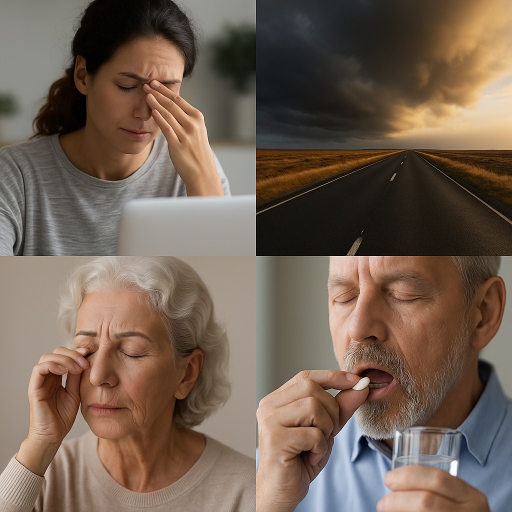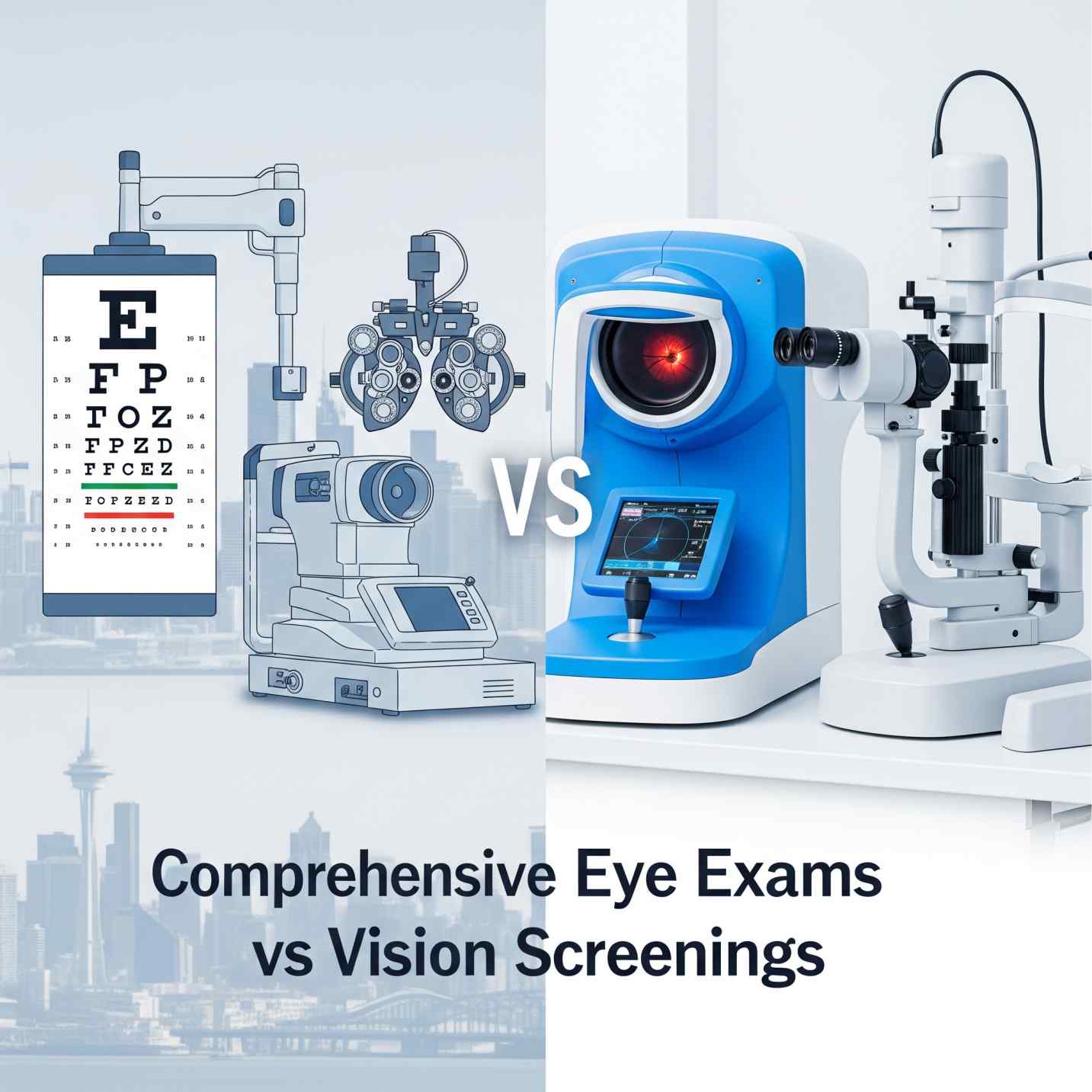Dry Eye Relief Tips for Seattle’s Climate
Could environmental factors trigger your dry eye?
In Seattle WA, these elements significantly impact symptoms:
-
Low humidity from indoor heating/AC
-
Windy conditions (common near Puget Sound)
-
Prolonged exposure to dry offices or airplanes
These accelerate tear evaporation, causing corneal dryness that worsens discomfort.
Our Seattle patients find relief through:
- Preservative-free artificial tears (avoid redness relievers like Visine)
- Wrap-style sunglasses for windy days
- Humidifiers – bedroom units or compact desk models
Age and hormonal shifts significantly impact dry eye
Key connections our Seattle clinic observes:
-
Reduced tear production/quality with aging
-
Postmenopausal women are at higher risk due to hormonal effects on tear glands
-
Meibomian gland decline → less protective oil → faster tear evaporation
For age-related dry eye management:
- Specialized eye exams at Seattle dry eye clinics
- Preservative-free artificial tears
- Hydration-focused habits (especially in drier WA seasons)
Tear Film Dysfunction: Seattle’s Root Cause of Dry Eye
Your eyes depend on three synergistic layers for comfort:
The Tear Film Trio:
-
Oil (Lipid) Layer
-
Source: Meibomian glands
-
Role: Prevents evaporation (critical in Seattle’s dry seasons)
-
-
Water (Aqueous) Layer
-
Source: Lacrimal glands
-
Role: Delivers moisture + nutrients
-
-
Mucus (Mucin) Layer
-
Source: Conjunctival goblet cells
-
Role: Ensures even tear spread
-
Disruption in any layer → dry eye symptoms.
How Dysfunction Happens:
✓ Reduced tear production
-
Aging, Sjögren’s, or medications
✓ Faster evaporation
-
MGD (86% of cases, per our clinic data)
✓ Mucin deficiency
-
Vitamin A shortage or inflammation
This instability causes dryness → irritation → inflammation.
Seattle Solution Path:
- Tear film analysis at our Pike Place clinic
- Personalized layer-targeted therapy
Digital eye strain from screen use is a major dry eye trigger in Seattle
Key connections:
-
Reduced blink rates during focused screen work
-
Prolonged exposure to phones/computers
-
Blue light exposure worsens fatigue
This combination creates “computer vision syndrome” – dryness plus eye ache.
Our Seattle practice recommends:
- 20-20-20 rule: Every 20 minutes, gaze 20 feet away for 20 seconds
- Conscious blinking: 10 firm squeezes (as taught by Dr. Cannon)
- Workstation tweaks: Position near windows for natural breaks
- Blue-light management: Filters or specialty lenses
Medications and health conditions significantly impact dry eye
Common triggers seen in Seattle patients:
Medications That Disrupt Tears:
-
Antihistamines/decongestants
-
Antidepressants
-
Hormone therapies
Associated Health Conditions:
-
Diabetes
-
Autoimmune diseases (e.g., Sjogren’s syndrome)
If you suspect your medication or health issue worsens dry eye:
- Consult your Seattle physician about alternatives
- Coordinate care with a dry eye specialist
Eyelid anatomy and blink function critically impact dry eye
At our Seattle clinic, we address these key factors:
Common Structural Issues:
-
Ectropion: Lower lid drooping outward → tear insufficiency
-
Entropion: Lid turning inward → excessive tearing
Meibomian Gland Dysfunction (MGD):
-
Causes 86% of dry eye cases (per clinical studies)
-
This leads to gland clogs, styes, or permanent atrophy
-
Requires specialized management beyond standard drops
Effective Solutions:
- Daily routines: Warm compresses + deliberate blinking
- Clinical treatments: In-office thermal gland expression (available at our Pike Place location)
- Advanced artificial tears for symptom relief
FAQs
-
What are the main causes of dry eye?
Dry eye is caused by reduced tear production, poor tear quality, environmental factors like wind or dry air, hormonal changes, and certain medications.
-
How does aging affect dry eye symptoms?
-
Can medications cause dry eye? Which ones?
-
How do environmental factors trigger dry eye?
-
Why do women get dry eye more often than men?
-
How does screen time contribute to dry eye?
-
When should I see a doctor for dry eye symptoms?
-
What is the difference between dry eye and watery eyes?
-
How can I prevent dry eye from environmental factors?
-
Can dry eye be caused by autoimmune diseases?
-
Are there natural remedies to improve dry eye symptoms?
-
Does blinking more often help with dry eye?


